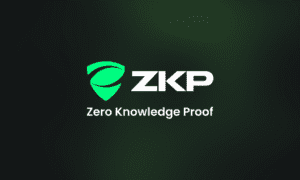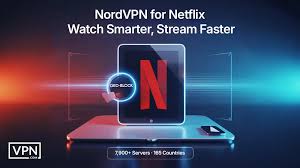Introduction:
In the fast-paced realm of technology, staying abreast of the latest innovations is not merely an advantage but a necessity. Blockchain technology, with its decentralized and transparent nature, has emerged as a transformative force across industries. As the demand for blockchain professionals continues to rise, the role of blockchain education becomes paramount. This article explores the essential abilities gained through blockchain education, shedding light on the significance of acquiring these skills in today’s digital landscape.
Understanding Blockchain:
The Foundation of Digital Transformation:
Before delving into the key abilities acquired through blockchain education, it’s crucial to grasp the fundamentals of this revolutionary technology. Blockchain, at its core, is a decentralized and distributed ledger system that ensures secure and transparent transactions across multiple nodes. It stands as the foundation of digital transformation, offering unprecedented opportunities for innovation and efficiency.
1. Cryptocurrency Literacy:
Beyond Bitcoin and Ethereum:
Blockchain education goes beyond the basics, providing a comprehensive understanding of cryptocurrencies. While Bitcoin and Ethereum often take the spotlight, blockchain education delves into various cryptocurrencies, exploring their unique features and use cases. This literacy empowers individuals to navigate the evolving landscape of digital currencies, making informed decisions in an increasingly crypto-centric world.
Key Abilities Attained through Blockchain Education:
2. Smart Contract Proficiency:
Automating Processes Securely:
One of the key abilities cultivated through blockchain education is proficiency in smart contracts. These self-executing contracts with coded terms automate and enforce agreements, eliminating the need for intermediaries. Blockchain education equips individuals with the skills to develop, deploy, and manage smart contracts, paving the way for more efficient and secure business processes.
3. Decentralized Application (DApp) Development:
Building the Future:
Blockchain education extends its reach to decentralized application (DApp) development. DApps operate on blockchain technology, offering increased security and transparency. Learning to develop DApps provides individuals with the capability to contribute to the ongoing evolution of decentralized systems, fostering innovation in various sectors.
4. Security Protocols Mastery:
Safeguarding Digital Assets:
In the digital landscape, security is paramount. Moreover, blockchain education goes beyond surface-level insights; it instills a deep understanding of security protocols within individuals. Transitioning from theoretical knowledge to practical application, learners delve into various aspects—from cryptographic techniques to consensus algorithms. This holistic approach ensures that individuals acquire the knowledge needed to safeguard digital assets effectively. Importantly, this proficiency becomes increasingly crucial as businesses and industries integrate blockchain solutions to enhance their operations. The interconnected nature of these security measures highlights their pivotal role in fortifying the integrity and resilience of digital ecosystems.
5. Industry-Specific Blockchain Integration:
Tailoring Solutions:
Blockchain is not a one-size-fits-all solution; its applications vary across industries. Through tailored education programs, individuals gain the ability to integrate blockchain solutions specific to their chosen field. Whether in finance, healthcare, or supply chain management, blockchain-educated professionals can navigate industry-specific challenges and contribute meaningfully to their sectors.
The Significance of Blockchain Education in the Digital Landscape:
6. Fostering Critical Thinking:
Problem Solving in the Blockchain Realm:
Blockchain education is not just about learning specific technologies; it cultivates critical thinking skills. Individuals develop the ability to analyze complex problems within the blockchain realm and formulate innovative solutions. This emphasis on critical thinking extends beyond blockchain, becoming a valuable asset in navigating the broader digital landscape.
7. Adaptability in a Dynamic Environment:
Navigating Technological Shifts:
The digital landscape is dynamic, with technological shifts occurring at an unprecedented pace. In response, blockchain education, by its nature, encourages adaptability. As learners progress, they become adept at quickly grasping and implementing new advancements in blockchain technology and related fields. This, in turn, positions them as agile professionals capable of not only surviving but thriving in the ever-changing digital environment. The symbiotic relationship between blockchain education and adaptability underscores the strategic advantage it imparts to individuals navigating the dynamic terrain of technology.
Transitioning from Education to Application:
8. Collaboration and Networking:
Thriving in the Tech Community:
Blockchain education is not just an individual pursuit but a community-driven endeavor. Through collaborative projects and networking opportunities, individuals build connections within the tech community. This collaborative spirit is essential for staying updated on industry trends, sharing insights, and fostering a supportive environment for continued learning and growth.
The Future Landscape:
Blockchain-Educated Professionals at the Helm:
As the digital landscape continues to evolve, professionals equipped with blockchain education find themselves at the forefront of innovation. Consequently, from developing groundbreaking solutions to securing digital transactions, these individuals become indispensable in steering industries toward a more efficient, transparent, and secure future. This transformative impact underscores the pivotal role that blockchain-educated professionals play in shaping the trajectory of industries in the dynamic digital era.
Conclusion:
Blockchain education is not just about acquiring technical skills; rather, it’s a journey toward becoming a proficient navigator of the digital landscape. By instilling a deep understanding of blockchain fundamentals, fostering critical thinking, and emphasizing adaptability, blockchain education seamlessly equips individuals with the key abilities needed to thrive in today’s dynamic tech environment. Furthermore, as industries increasingly integrate blockchain solutions, the demand for blockchain-educated professionals will only intensify, making the investment in blockchain education a strategic move toward a successful and fulfilling career in the digital era.



































